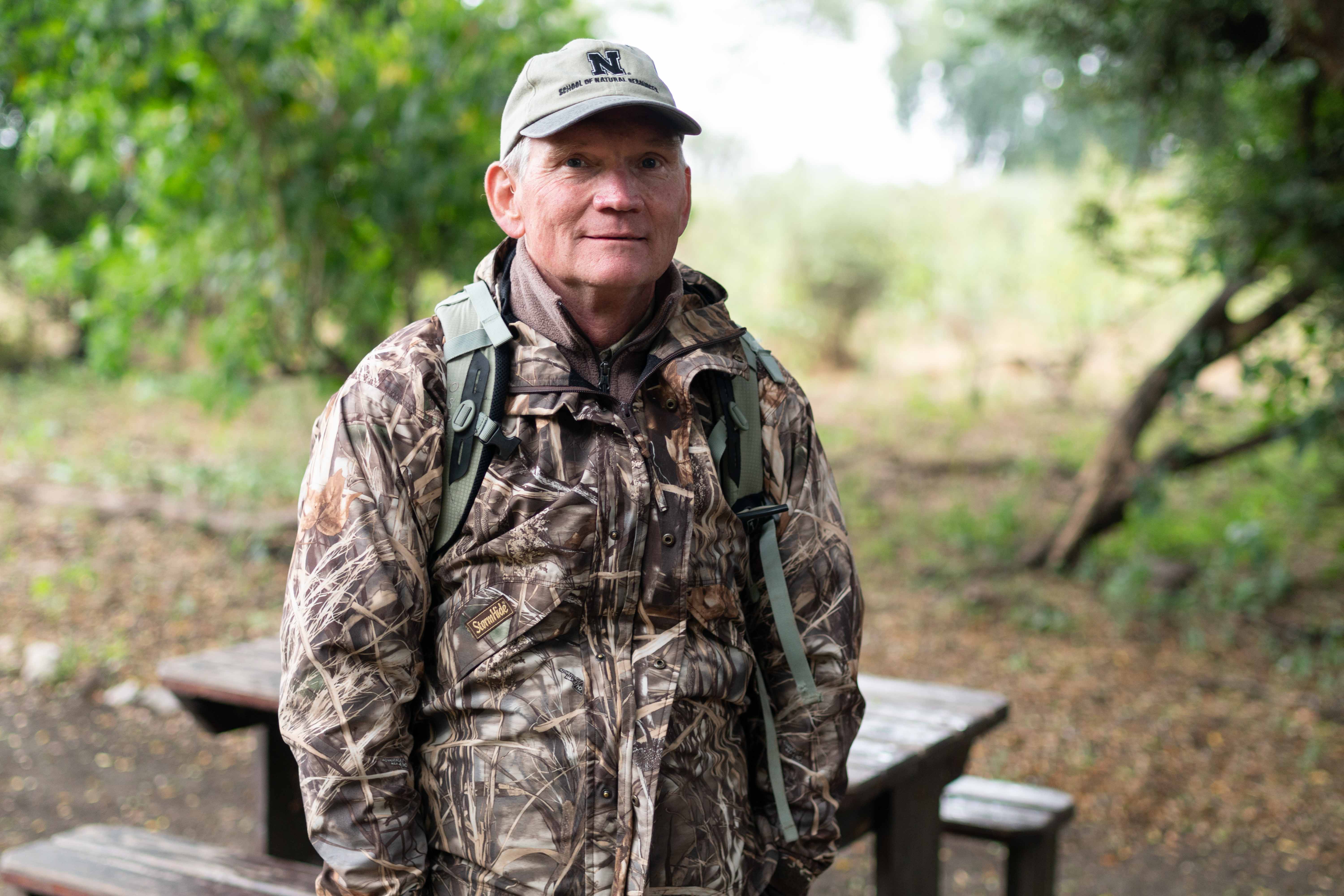Prof John Carroll has been coming to Africa and bringing university students to do EcoTraining courses for over 20 years. He’s the Director of the School of Natural Resources at the University of Nebraska Lincoln and his ‘out the box’ thinking during Covid enabled some of his students to incorporate EcoTraining’s Online Field Guiding course into their university degree. “Doing the online course with my students was definitely a Covid-driven experiment. We approved it to be taken for credits at the University of Nebraska, and it was a substitution for courses that were cancelled due to the pandemic,” explains Prof Carroll, “and it worked really nicely.”
Fifteen of Prof Carroll’s students did the Online Field Guiding course in the second half of 2021, and four of the students opted in to do the month-long practical aspect at Makuleke Camp in May. “Most of the students did very well with the EcoTraining course,” says Prof Carroll. “I sat in with them and helped translate some of the variations of English vernacular, but in the end mammals are mammals and birds are birds really. It worked very well. The online course follows global principles. We learn about American wildlife, but I like bringing students to Africa to see there are very bright people in other parts of the world who are working on wildlife solutions in their specific context. So, it broadens the horizon for our students.”
Of the instructors, Prof Carroll says they are excellent. “My students could have easily done the course without my facilitation, because it’s only the terminology that tends to be different. The course gives students who want to visit Africa a really good grounding, so when they arrive, they hit the ground running. And it all gets students to think outside of the narrow field of how the US focuses on wildlife conservation – even if they don’t intend ever working in Africa.”
Prof Carroll says the students at his university who have been most interested in the course have been those studying wildlife conservation. “But in the past, students have come with me to Africa who have studied International Affairs or Geography. It has been an eye opener to them, because wildlife conservation is so connected to local people, when in their studies they have been focusing on policy, politics and culture. Higher education is about expanding horizons and being flexible, not rigid. If you think out of the box, you can be creative on how to incorporate these sorts of activities into learning. I try to think about what’s best for the students.”
In Prof Carroll’s opinion, the course is really accessible to anyone with an interest in wildlife conservation. His students ranged in age from 18 to 26, but on the online course there were also students in their fifties from South Africa and all over Europe.
“This was the first time the online course was done with the intention of embedding it in the university’s course,” explains Prof Carroll. “Not all the students who did the online theory course did the practical, which is not how I originally envisaged it, but they still learnt a lot about Africa which is also ok. The students here in Makuleke now feel much more comfortable doing this practical, because they have completed the online course. But the online course on its own has great value too, as it’s a very good natural history course. I think the one mistake we made was to have a long time gap between doing the course and actually coming to South Africa to do the practical, as the students got rusty.”
Going forward, Prof Carroll says he would like to more formally embed some of the EcoTraining courses into the university course, and he is working on that now. “So then students can take a year out to come to Africa on an EcoTraining course, but they won’t lose a year of study while doing it. That would really be ideal. We could do the same thing with shorter courses in South Africa during their US summer break – like the 55-day course. We just need to establish the protocol on my side on how to credit them for their course.”
However, Prof Carroll says: “If you are interested in wildlife conservation, this is a very good introduction to southern African wildlife, and it’s a lot of fun. There was great camaraderie and my students got to know other students from around the world. It’s an opportunity to broaden your horizons, and the financial investment is not huge. The course also gives you the inside take if you do visit Africa on holiday in the future. Actually, I think the course is also excellent for retirees because they have time, cash and they want to visit Africa. And when they do visit, they will understand the context. I sat in on the whole course and I had a great time. It was really a lot of fun and even after working in Africa for more than 30 years there were still things to learn.”
– Article written by Keri Harvey who interviewed Prof John Carroll while in EcoTraining‘s Makuleke camp as part of their study abroad course at the University of Nebraska Lincoln

0 Comments